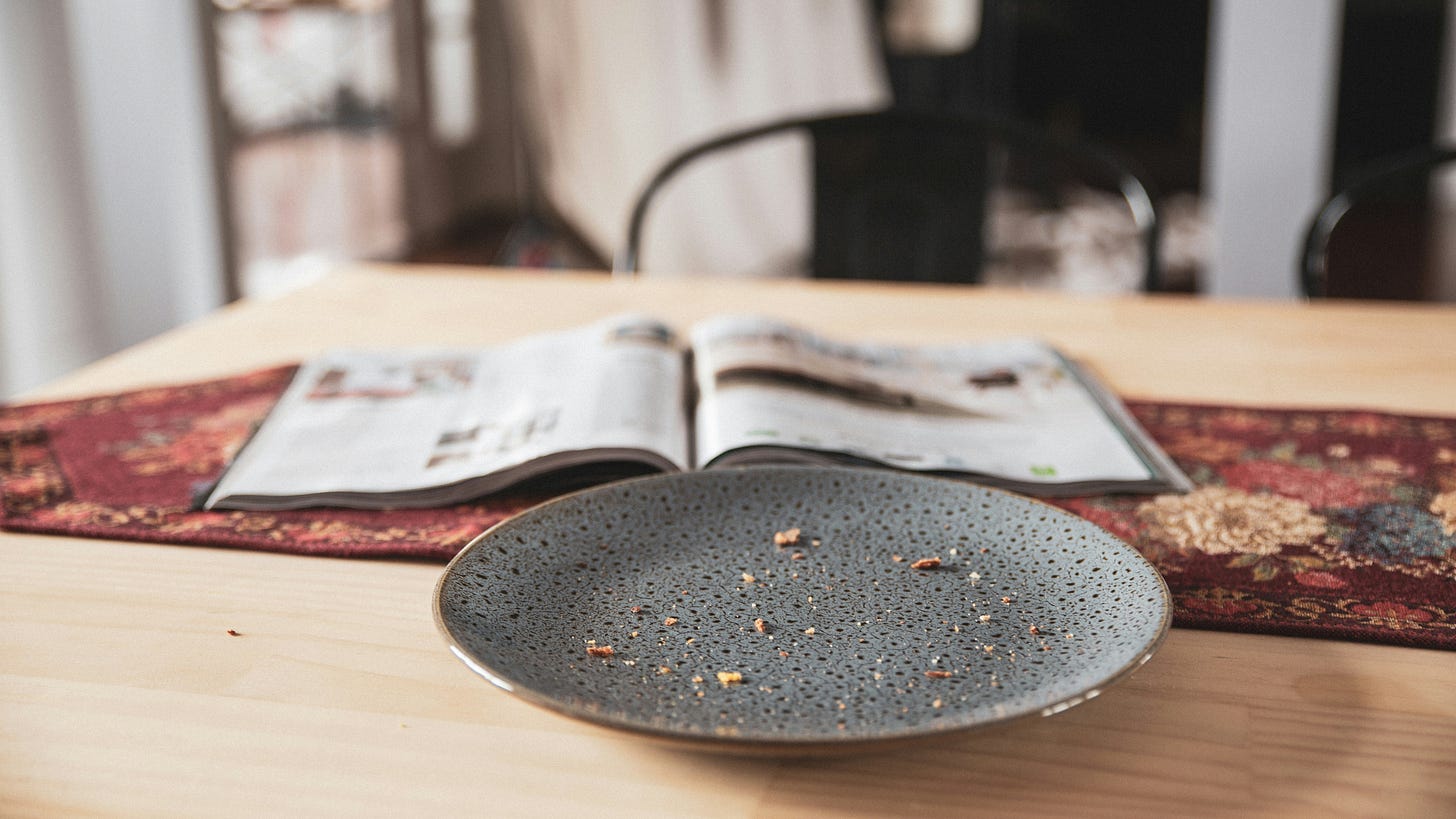Crumbs of Humanity
Homily for Sunday, September 14, 2025: Feast of the Exaltation of the Holy Cross

As a child I really got into reading Greek Mythology. I just loved all those stories of heroes and monsters, and gods who were in many ways very different from the God I learned about in church.
Except there was this one story.
The gods Zeus and Hermes come to earth, disguised as peasants, and they enter a village looking for a meal and a place to stay. One house after another turns them away. All of them, except one old married couple who invite them in to share their meager food and sparse lodgings.
This ideal of Hospitality is a major theme in Ancient Greek literature. But the notion of the Olympian gods appearing in humble disguise like this was unusual – it always felt to me more Christian than Greek. Up to a point.
Up to two points, actually. At the end of the story, this old couple is turned into intertwining trees, growing together for ages to come. It’s a thing in Greek mythology, the gods reward people they like by turning them into vegetation. Their version of eternal life, perhaps.
But the other way this story departs from Christian thinking is when Zeus and Hermes show the couple the destroyed remains of the village – the divine retribution inflicted upon those who had treated them so inhospitably.
By contrast, we can look at an episode from Luke’s Gospel when Jesus and his disciples pass through a Samaritan village. That village too is inhospitable, refusing to welcome them. So James and John ask, Lord shall we call down fire from Heaven to consume them? Like Zeus and Hermes, the brothers want to call down divine wrath on this sin of inhospitality.
But Jesus rebukes them. He’s not that kind of God.
In fact, Jesus completely reverses our whole understanding of what it is to be God. In today’s Gospel he tells us, God did not send his son to condemn the world, but that the world might be saved through him.
Saint Paul says that though he was in the form of God, Jesus did not regard equality with God something to be grasped.
That, of course, was the sin of Adam – to grasp at equality with God. Even now we still grasp at that godhead, trying to be stronger, faster, richer, more powerful, always wanting to put ourselves above all others. And all the while our God is saying, “Guys, I’m down here.”
He’s right here. In these words that we hear, in this bread we receive, he is present to us in forms so humble we might miss them if we’re not paying attention.
Mother Theresa of Calcutta would tell her novices, as they prepared to go minister to the poor, at Mass, watch how the priest handles the host, how tenderly he holds the Body of Christ. And remember too, when you encounter the poor in the streets, that is the same Body of Christ.
I think of that often, in my ministry as a deacon. One of my roles here on the altar, as a friend likes to put it, I “set the table and wash the dishes.” And in washing the dishes I have to remember that every crumb is Christ. We don’t just sweep Christ under the carpet or trample him underfoot. Mother Theresa and her Sisters of Charity in their own way looked after the crumbs of the Body of Christ. They look after the discarded, the trampled, the swept-away crumbs of humanity.
That is Jesus who emptied himself, coming in human likeness, found human in appearance, who humbled himself even unto death on a cross.
To be humbled, so that he might be exalted.
We celebrate today the feast of the Exaltation of the Cross, as a reminder that it is in the humility of suffering and death that Christ is exalted. He shares our suffering, joins us in our mortality, so that we who suffer and die with him can also be exalted with him.
It’s the irony of our faith, foolishness in the eyes of the World, that the more we grasp at being like God, the further we find ourselves removed from the God who has already lowered himself us so that we can be raised up together.

